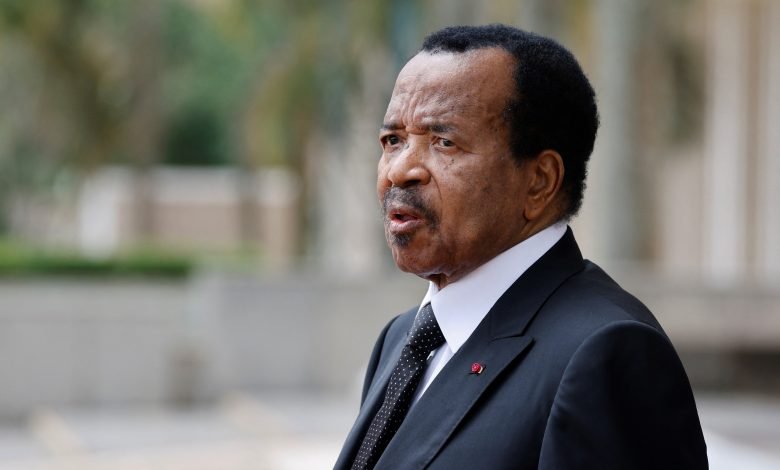The Cameroonian authorities have imposed a ban on media coverage regarding the health of President Paul Biya, intensifying concerns about press freedom in the country. The decision comes amid mounting rumors surrounding the 91-year-old president’s health, following his prolonged absence from public appearances. Cameroonian Interior Minister Paul Atanga Nji announced the media ban, warning that any violation of the order would result in severe legal consequences.
The directive specifically prohibits any public debate or media discussion about President Biya’s health, which has been the subject of increasing speculation in recent weeks. Minister Nji stated that such rumors “disturb the tranquillity of Cameroonians” and insisted that the health of the president is a matter of national security. The 91-year-old leader has not been seen in public since early September, fueling widespread rumors about his condition.
Government Response and Justification
In an address to regional governors, Interior Minister Nji declared that any reports or debates in the media regarding President Biya’s health are now strictly prohibited. “Offenders will face the rigour of the law,” he warned, emphasizing that discussions on the president’s condition could cause unnecessary unrest. He also directed governors to ensure that the ban is enforced across private media outlets and social media platforms.
Government officials have repeatedly pushed back against rumors, assuring the public that President Biya is in good health and currently on a private stay in Geneva, Switzerland. Despite these assurances, the president’s absence from the political scene has sparked further speculation. Nji reiterated that the health status of the head of state should not be a topic for public discourse, as it touches on matters of national security.
Media Backlash and Press Freedom Concerns
The ban on discussing President Biya’s health has been met with strong opposition from media professionals and press freedom organizations, both within Cameroon and internationally. Journalists in the country argue that the order infringes on their rights and significantly hampers their ability to report news accurately and transparently. A Cameroonian journalist, speaking to the BBC on condition of anonymity, said, “By saying that mention should not be made of the president’s [health] situation, I find it an infringement on our rights. It’s going to really affect the way we report because we’ll certainly not want to run into trouble with the government.”
Cameroon has a history of tensions between the government and the press, with journalists often targeted by both state authorities and insurgent groups. The latest directive has raised fears that journalists covering politically sensitive topics may face increased harassment or even imprisonment. One journalist, expressing defiance, stated, “I will continue to report even though I fear they could track me down, because there’s no way my report will not talk about the president’s whereabouts or what could be happening to him.”
Global Criticism of the Ban
International press freedom organizations have also voiced concerns about the Cameroonian authorities’ decision to ban reports on President Biya’s health. The Committee to Protect Journalists (CPJ) issued a statement urging the government to end its threats against the media. Angela Quintal, head of CPJ’s Africa Program, called for more transparency, saying, “The health of the president, who has been in power for 41 years and may seek re-election next year, is of public interest. Any misguided attempt to censor reporting about his health for national security reasons simply fuels rampant speculation.”
Quintal also suggested that the government should end the speculation by arranging a public appearance by President Biya to dispel the rumors. She added that the government’s current approach only increases suspicion about the president’s health, rather than alleviating public concerns.
The Political Implications
The restrictions on discussing President Biya’s health come at a sensitive time for Cameroon, with the president having ruled the country for more than four decades. Speculation about his health and potential succession plans is mounting, particularly with the possibility of Biya seeking re-election next year. For many Cameroonians, the uncertainty surrounding his health raises important questions about the future leadership of the country.
The ban has not only fueled criticism about the lack of transparency in the government but has also highlighted broader concerns about the state of democracy and freedom of speech in Cameroon. The continued restrictions on media reporting, particularly in relation to the president, suggest that the government is seeking to control the narrative ahead of any potential political changes.
Conclusion
As rumors about President Paul Biya’s health persist, the Cameroonian authorities have taken the controversial step of banning media coverage on the issue. While officials claim the move is necessary to maintain national security and public order, journalists and press freedom advocates argue that it undermines the basic principles of free speech and transparency. With President Biya having ruled Cameroon for over 40 years, the uncertainty about his health and future leadership continues to grip the nation. The ban has only intensified public curiosity, with many awaiting a clear response from the government to address these growing concerns.
Stay connected to know more on arcnews.online for global news like Cameroonian Authorities Ban Reports on President’s Health Amid Growing Speculation. For videos updates visit our YouTube. Do subscribe to Arcnews to get latest updates directly in your mail box.
Have A Great Day.


